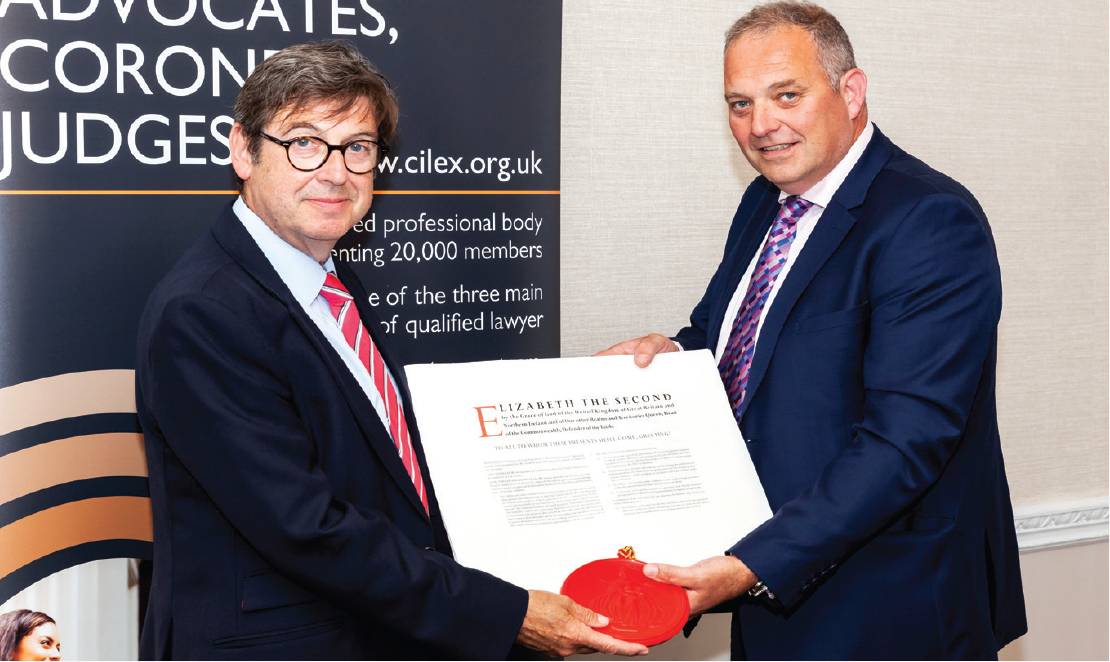CILEx Group Board
CILEx is changing: governance reforms come into force
Philip Sherwood has taken over as the 55th President of CILEx under the Chartered Institute’s new governance and company structure.

CILEx is changing - the name of the overall programme of transformation that will run throughout 2018 to make CILEx a streamlined, agile organisation fit to face the challenges of the future - has made further progress, with the Group Board in place and with members of its forerunner Council having transitioned on to the new CILEx Professional Board.
The CILEx Professional Board is smaller than its predecessor Council – the Board has nine professional members and two independent members, compared to 23 Council members – and Philip Sherwood explains that all of them had to go through a rigorous competence-based application process to show they were the right people for the job.
‘The new structure has to be fit for purpose – we want the right people in the right places, leading the organisation and making the strategic decisions. I believe that this is what we now have,’ he says.
He went on: ‘It is also fitting that we have just received the Lord Chancellor’s approval for CILEx Regulation Limited to license alternative business structures, as everything is now in place for CILEx and its members to stride confidently into a future that holds many exciting possibilities for us all.’ See page 8 of this issue.
Philip Sherwood will chair the Board of CILEx Professional, which is one of the boards that form part of the CILEx governance structure under the new Group Board. CILEx Professional is dedicated to promoting the profession’s interests. The other group companies are CILEx Law School (delivering legal education) and CILEx Group Services (providing business infrastructure to all parts of the group). CILEx Regulation Limited will continue to have its own independent board.
The Group Board is at the apex of the governance structure, which separates out CILEx’s duties to the public interest, the profession and independent regulation. With its independent chair, Professor Chris Bones, the Group Board has an overarching duty to the public interest. It is charged also with protecting CILEx’s Royal Charter and its reputation.
Professor Bones says: ‘Since my appointment in January, we have all been working hard to ensure a seamless transition to the new governance regime, which reflects the multi-faceted nature of the organisation.
‘I believe that with the support of a 'fit-for-purpose' Chartered Institute, CILEx members have every opportunity to make the best of a legal market more receptive than ever to their skills and experience.’
CILEx’s priority in implementing change is to put its members front and centre of the Chartered Institute. This means firstly listening and learning to ensure that CILEx looks and does what members and stakeholders want and need it to and secondly setting the right future strategy how CILEx is positioned in the legal sector, to ensure members have equality of opportunity, increased recognition and improved career prospects. This is achievable only with the right governance and company structure, and the reforms being made are designed to deliver those ambitions.
